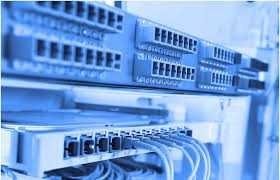Switching (networking)
The main pillar of network switch and network hub computer network In the case of networking, the switch is an instrument that can filter the filtering and packet forwarding during the exchange of data packets within the various parts of the local area network . The switch works on one of the data layer layers of the OSI layer. But sometimes it also works on the network layer. Local area networks (LANs) that use switches for communication between their various parts are called switched lanes.
Switches that process data in excess of the network level (level 3) and are often referred to as the layer 3 switch. The first Ethernet switch was introduced in 1990.
Work
Network Switch is the most modern Ethernet connected network connected switch. Small Office (SOHO) applications use single switch, or a broadband service such as DSL or simply as a device gateway to access the Internet. The user interface of this technology can include a telephone interface for VoIP and a telephone interface. An Ethernet switch has to create a separate domain for each port.
The role of the network switch
Switch can handle one or more layer of OSI model. A device operates simultaneously in more than one of these layers as a multilayer switch. The switch may connect to a different type of network, including for commercial use, built-in or modular interface, all networks, including Ethernet, Fiber Channel, ATM, ITU-T GHN and 802 11. Some firewalls network detection and functionality analysis modules that carry inventory of switch ports.
Level specific actions
At any level, a modern switch can implement rights over Ethernet (PoE), which avoids the need to retrieve a separate device, such as a VoIP phone or wireless data.
